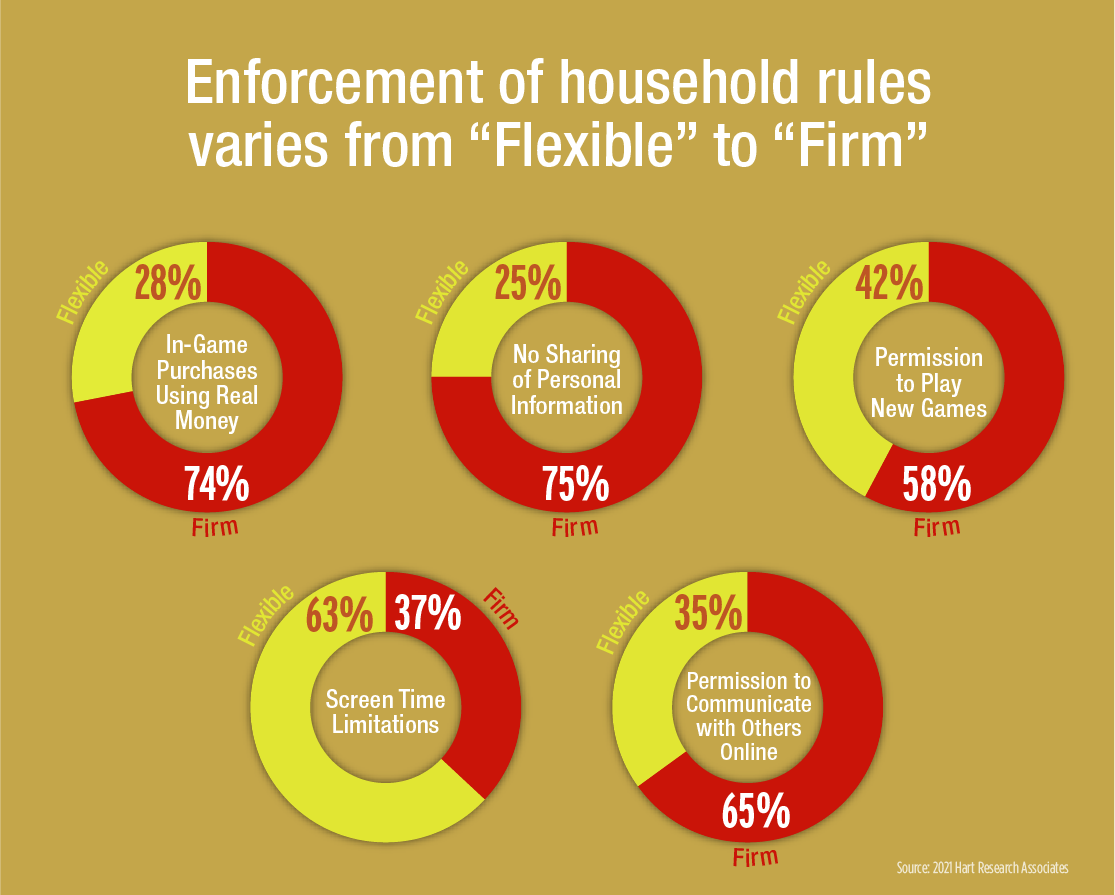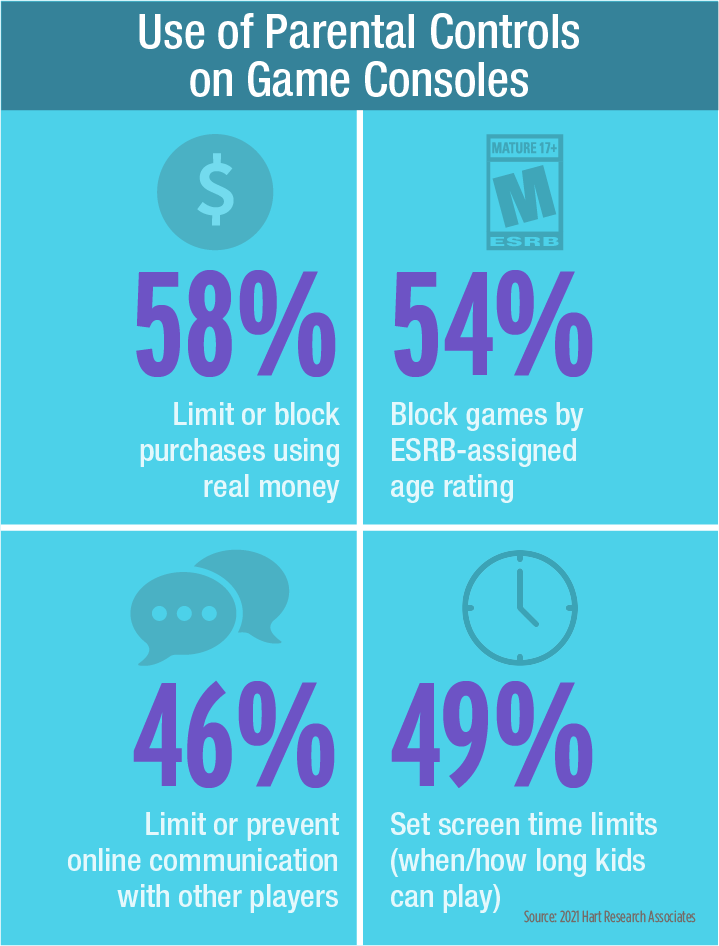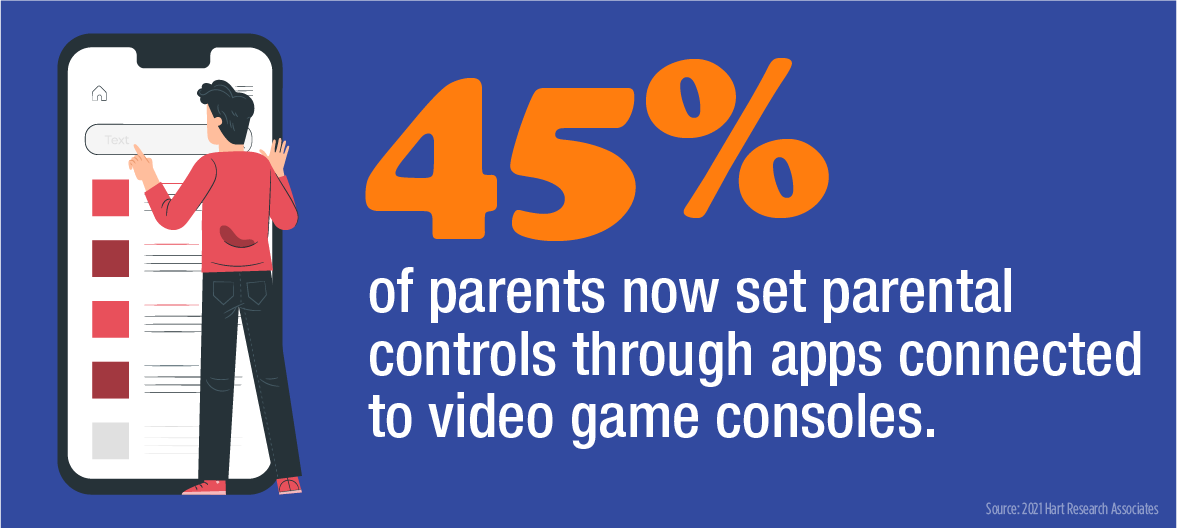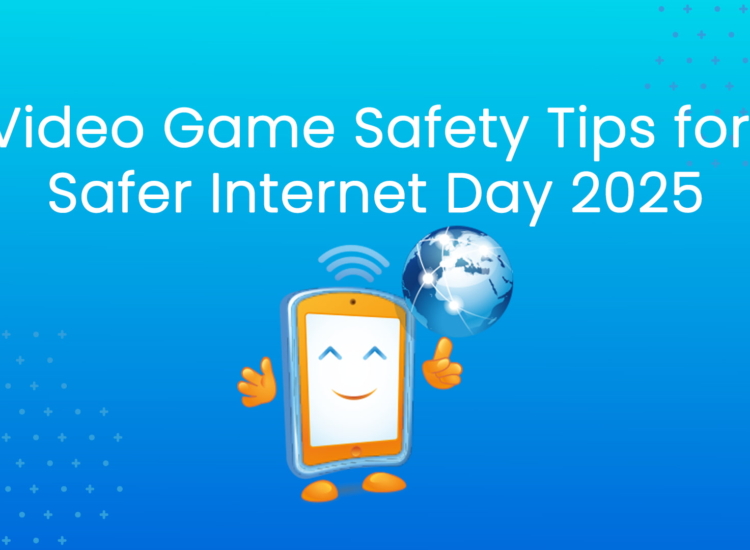Parents Level Up on Monitoring Their Kids’ Video Games

Every year ESRB conducts a survey to see whether parents are aware of and use the many tools we provide to help them manage their kids’ video game experiences. This is a great opportunity for us to gain a better understanding of how parents use ESRB-assigned age and content ratings, implement household rules, set parental controls, and more. While the country tries to open back up and find a new “normal,” we found many similarities to last year’s survey results as parents take their knowledge about the video games their kids play to the next level.
The latest survey results indicate several key trends.
Trend: ESRB Ratings Continue to Be Very Important to Parents
Awareness and use of ESRB ratings remain high among parents, and all three parts of the rating system continue to be very, if not extremely, important to more than three-quarters of parents when deciding whether a game is appropriate for their children.
Parents continue to use ESRB ratings as a first step to picking appropriate games. This has been relatively consistent from year-to-year, exemplifying ESRB-assigned age and content ratings are core to many parents’ decision-making process. Among parents who purchase physical games for their children, 84% say they are aware of the age ratings, while 75% say they use them “every time” or “most of the time”.
While this goes a long way to explaining how caregivers pick appropriate games for everyone in the family, there is more to the story.
Trend: Parents Are Strictest When It Comes to Their Children Making In-Game Purchases or Sharing Personal Information Online
In 2020, we saw that most parents establish and enforce household rules to manage what their kids play, how much money (if any) they can spend on in-game purchases, with whom they can play, and for how long. This trend has continued and expanded into 2021.
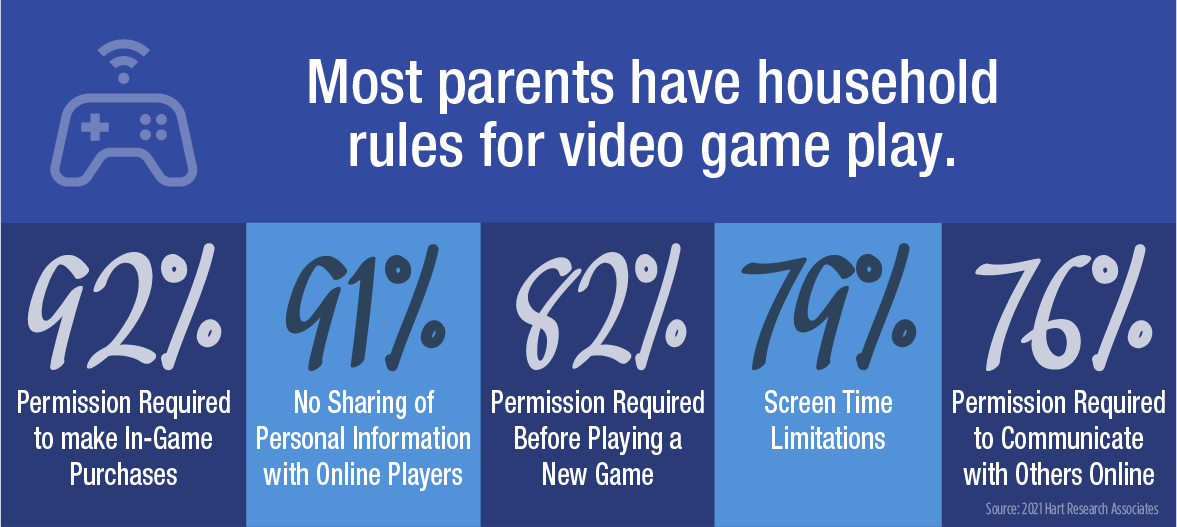
In the past year parents have remained aware of the potential pitfalls of sharing personal information with others online. 91% of parents said they have a household rule barring the sharing of any personal information with other players online. Three-quarters of parents say there is “no flexibility” with this measure.
It is also clear that parents are actively engaged in determining the type of video games they let their children play. The survey revealed that 82% of parents require that their kids get permission before playing any new game, and 58% say there is “no flexibility” when enforcing this rule.
Screen time has always been a key part of household rules. In fact, 79% of parents say they have rules regarding when (and for how long) their kids can play. Interestingly, flexibility on this rule tends to be significantly more relaxed than other rules about video games. Over the past year with children turning their screen time into school, play dates, and entertainment, it stands to reason that 10% of parents say they are “very flexible” with this rule, 53% are “a little flexible” while 34% cite “no flexibility”. We’ve also seen more parents turning video games into a family activity.
Lastly, 76% of parents require that their children get permission before communicating with others online via chat, text, or video. According to the survey, 65% of parents say there is “no flexibility” with this household rule.
Trend: Most Parents Are Familiar with In-Game Safety Features
Parents are not only aware of a game’s online community guidelines, but they are also aware of in-game settings to address encounters with other players behaving inappropriately.
More than 60% of parents say they are familiar with monitoring features in the games their kids play, such as the ability to mute, block, and/or report other players. Many video games also have community guidelines, which are rules governing how players interact online. For example, many community guidelines bar players from engaging in toxic behavior (harassment, hate speech, etc.) and/or cheating. 54% of parents say they are aware of community guidelines.
These in-game features are important for parents to know about, as they provide actionable steps to resolve conflict and avoid other players that behave inappropriately. Moreover, the survey results show there’s more work to do to better inform parents about these in-game tools.
Trend: Parents are Taking Advantage of Parental Control Apps
By and large, parents trust their children to follow the household rules. That said, the survey also shows that parents take advantage of parental controls to make sure there is back-up when they aren’t around. Traditionally, parents set these controls directly on a console or other game device, but this year the survey reveals that parents are increasingly inclined to take advantage of setting parental controls remotely via a mobile app – provided by the platform.
A large majority of parents (83%) say they set at least one parental control on their kids’ gaming device be it a PC, a mobile phone or tablet, or a console.
In the past, most parents who set controls for game consoles did so directly on their kids’ device. However, parents have increasingly been taking advantage of the convenience of managing their kids’ games through parental control apps provided by the platforms. 45% of parents now set controls through apps (an increase from 31% in 2019) instead of on the game device itself.
Over the past year we have seen video games become a key avenue for communication, familial bonding, and stress relief. With this has come a greater understanding among parents, not only about how their children engage with video games, but why it is such a great resource for camaraderie, education, and fun.

